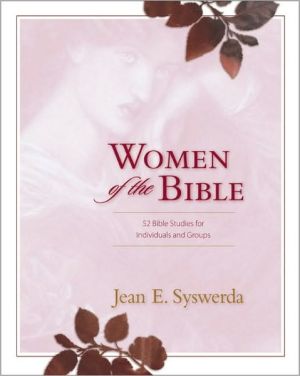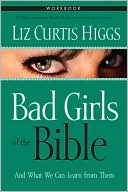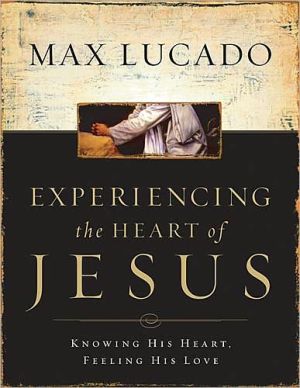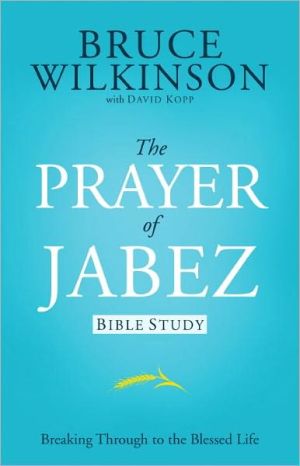Women of the Bible: 52 Bible Studies for Individuals and Groups
As you immerse yourself in their lives, you'll see more and more places where your life intersects with theirs.\ Focus on fifty-two female heroes in Scripture, and you'll discover yourself in the process. Women of the Bible: 52 Studies for Individuals and Groups is designed especially for those who want to delve more deeply, either alone or in a group, into the lives of women like Ruth, Anna, Esther, Leah, Rachel, Mary, Elizabeth, and other women who encountered the living God.\ This study...
Search in google:
A unique resource for individuals and groups interested in studying all the major female characters in the Bible.
Women of the Bible\ 52 Bible Studies for Individuals and Groups \ \ By Jean E. Syswerda \ ZONDERVAN\ Copyright © 2002 Ann Spangler and Jean Syswerda\ All right reserved.\ ISBN: 0310244927\ \ \ \ Chapter One\ Eve\ Her Name Means "Life-giving" or "Mother of All Who Have Life"\ Her Character: She came into the world perfectly at peace with her God and with her husband, the only other person on the planet. She lived in Paradise, possessing every pleasure imaginable. She never knew the meaning of embarrassment, misunderstanding, hurt, estrangement, envy, bitterness, grief, or guilt until she listened to her enemy and began to doubt God.\ Key Scriptures: Genesis 1:26-31; Genesis 2-4\ * * *\ The man gave names to all the livestock, the birds of the air and all the beasts of the field.\ But for Adam no suitable helper was found. So the Lord God caused the man to fall into a deep sleep; and while he was sleeping, he took one of the man's ribs and closed up the place with flesh. Then the Lord God made a woman from the rib he had taken out of the man, and he brought her to the man.\ The man said,\ "This is now bone of my bones and flesh of my flesh; she shall be called `woman,' for she was taken out of man."\ For this reason a man will leave his father and mother and be united to his wife, and they will become one flesh.\ The man and his wife were both naked, andthey felt no shame.\ Now the serpent was more crafty than any of the wild animals the Lord God had made. He said to the woman, "Did God really say, `You must not eat from any tree in the garden'?"\ The woman said to the serpent, "We may eat fruit from the trees in the garden, but God did say, `You must not eat fruit from the tree that is in the middle of the garden, and you must not touch it, or you will die.'"\ "You will not surely die," the serpent said to the woman. "For God knows that when you eat of it your eyes will be opened, and you will be like God, knowing good and evil."\ When the woman saw that the fruit of the tree was good for food and pleasing to the eye, and also desirable for gaining wisdom, she took some and ate it. She also gave some to her husband, who was with her, and he ate it. Then the eyes of both of them were opened, and they realized they were naked; so they sewed fig leaves together and made coverings for themselves.\ ... So the Lord God said to the serpent, "Because you have done this,\ "Cursed are you above all the livestock and all the wild animals! You will crawl on your belly and you will eat dust all the days of your life."\ Genesis 2:20-3:7, 14\ Eve's Life and Times\ Childbirth\ Eve was the first woman to conceive a child, the first to harbor a fertilized egg in her womb. Did she understand the miracle taking place within her as her belly swelled and her child began to move? Did she know the wonder of love for a child yet unborn? The Bible doesn't give us those answers. But it does tell us that Eve recognized that life was in God's control. At Cain's birth she exclaimed, "With the help of the Lord, I have brought forth a man" (Genesis 4:1).\ God's judgment on Eve-"with pain you will give birth to children"-was no doubt exactly what Eve experienced in birthing this first child. It's the process we appropriately term labor. Eve likely bore the pain and went through the entire birth with only Adam's help.\ Later, Hebrew women had the help of experienced midwives, who knew remedies for common delivery difficulties. Midwives' responsibilities after the birth included cutting the umbilical cord, washing the newborn, rubbing it with salt for cleansing, and then wrapping it in swaddling cloths.\ The birth stool referred to in Exodus 1:16 was probably a low stool on which the mother-to-be squatted, allowing the force of gravity to aid in the birth process. The midwife and possibly other close relatives held the mother's hands to give comfort as well as stability as the mother bore down.\ Our Life and Times\ Women throughout the centuries have borne the results of Eve's sin. Their pain in childbearing unites them in a common bond of an experience shared. The experience is an unusual combination of the earthy and at the same time the unearthly. The pains, the panting, the mess and disorder connected with the birth of a child are of the earth, of Eve herself. But what is brought forth, and the bond between the mother and the child of this experience, is unearthly, something only the Creator of life could forge.\ Eve's Legacy in Scripture\ Read Genesis 2:21-25.\ 1. Describe Adam's situation (2:18, 20). In this paradise, what need did he have that only a woman could fulfill?\ 2. What does being "one flesh" (2:24) in a marriage mean, both physically and spiritually?\ 3. Think of a couple who truly seems to be "one flesh." What is their relationship like?\ Read Genesis 3:1-13.\ 4. Genesis 3:1-5 is one of the saddest passages in Scripture, but also the one that sets the stage for all that is to come. How easily do you think the serpent deceived Eve? Do you think she ate of the fruit the first time he approached her, or did he wear her down over a period of time?\ 5. Why did Eve eat the fruit (3:6)?\ 6. Eve is rationalizing her sin here. Even though she knew it was wrong, she came up with three reasons for eating from the tree. What sorts of reasons do you come up with to rationalize your sin?\ 7. Adam and Eve produce a classic scene of passing the blame: Adam blames Eve; Eve blames the serpent (3:12-13). Is any one of the three participants any more or less to blame? What do the curses God pronounces on each tell you about who is "at fault" (3:14-19)?\ Read Genesis 3:20-24.\ 8. What is the first thing God does for Adam and Eve after he declares what their punishment will be?\ 9. What does God's act tell you about him? What do you think he is willing to do for you after you have sinned and repented?\ Read Genesis 4:1-2.\ 10. Whom does Eve acknowledge as the source of life (4:1)?\ 11. Eve now has two sons (4:2). Cain's name is Hebrew for "brought forth," while Abel's name means "breath" or "temporary" or "meaningless." It is the same Hebrew word used in Ecclesiastes 1:2. Certainly, Abel's life was not meaningless, but it was short, and his name suggests what was to come. Compare Abel's name here and the verse in Ecclesiastes. What connections can you see between the two?\ Chapter Two\ Sarah\ Her Name Means "Chieftainness" or "Princess"\ Her Character: Beautiful enough to attract rulers in the ancient world, she could be strong-willed and jealous. Yet Sarah was considered a loyal wife who did what was right and who didn't give in to fear.\ Key Scriptures: Genesis 12:1-20; 16:1-8; 17:1-22; 18:1-15; 21:1-13; Galatians 4:22-31\ * * *\ The name of Abram's wife was Sarai.... Now Sarai was barren; she had no children....\ God ... said to Abraham, "As for Sarai your wife, you are no longer to call her Sarai; her name will be Sarah. I will bless her and will surely give you a son by her. I will bless her so that she will be the mother of nations; kings of peoples will come from her."\ Abraham fell facedown; he laughed and said to himself, "Will a son be born to a man a hundred years old? Will Sarah bear a child at the age of ninety?" ...\ Then God said, "... your wife Sarah will bear you a son, and you will call him Isaac." ...\ Sarah became pregnant and bore a son to Abraham in his old age, at the very time God had promised him....\ Sarah said, "God has brought me laughter, and everyone who hears about this will laugh with me." And she added, "Who would have said to Abraham that Sarah would nurse children? Yet I have borne him a son in his old age."\ Genesis 11:29-30; 17:15-17, 19; 21:2, 6-7\ \ \ \ \ Excerpted from Women of the Bible by Jean E. Syswerda Copyright © 2002 by Ann Spangler and Jean Syswerda\ Excerpted by permission. All rights reserved. No part of this excerpt may be reproduced or reprinted without permission in writing from the publisher.\ \
http://zondervan.com/media/samples/pdf/0310244927_samptoc.pdf







